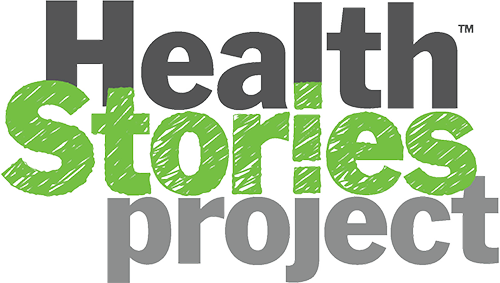On paper, Kitt O’Malley is a typical overachiever. She loved school as a kid and attended Berkeley, earning a bachelor’s degree in legal studies. She went on to earn a master’s in psychology from a private college and studied theology at Fuller Seminary. She worked as a therapist for a stint, then turned a temp job at a commercial real estate company into a successful decade-long career. She’s bright and incredibly hard-working. But she also struggles with bipolar disorder.
For O’Malley, who blogs about mental illness on her eponymous website and volunteers as a mental health advocate, a diagnosis of Bipolar II was a long time coming.
“All my life, every time I would shoot high and overachieve, I’d crash and have to start over,” she says. “This was before Bipolar II was even in the DSM. I was told I had depression.”
Bipolar disorder is a brain disorder that causes intense mood swings and affects energy, activity levels, and the ability to carry out day-to-day tasks. People with bipolar disorder, also known as manic depression, have bouts of mania and depression. For those with Bipolar II, a less severe form of the disorder, hypomania (not full-blown mania) — a state characterized by euphoria and hyperactivity — can look like run-of-the-mill overachieving, especially with someone gifted like O’Malley.
“My lows were always much deeper than my highs,” she says. “My lows were very low.”
At 18, O’Malley felt suicidal and saw a psychiatrist for the first time. In her 20s, she tried attending self-help groups like ACA and Al-Anon but found them overstimulating and overwhelming, though she continued to manage her depression through individual therapy. Then, at 30, she descended into a deep funk and asked her doctor for medication for the first time. Not long after that, she had her first and only full-blown psychotic episode, likely caused by the tricyclic antidepressants she’d been prescribed. After a week of mania, from which she had difficulty recovering, she moved in with her parents.
Being a Bipolar Parent
O’Malley eventually met and married a supportive man and they had a son, who turned out to be a high-needs child. Desperately wanting to get out of the house, she started working again, falling right back into her pattern of shooting for the stars and flaming out.
“When I was 39, I started having feelings of religious elation,” she says. “I recognized it as hypomania. I described my symptoms to the advice nurse for our health insurance and was advised to go to the emergency room or see a psychiatrist right away.”
Finally having the correct diagnosis was far from a cure-all, though. “Depression is accepted nowadays,” she says. “But not bipolar, especially a bipolar mom. I internalized all of society’s stigma and thought my son wouldn’t be safe with me, so I put him in daycare.”
She tried going back to work in her early 40s. “That didn’t last long,” she says. “I was voluntarily hospitalized for two weeks. It wasn’t for suicidality but for rapid mood cycling and mixed symptoms. My illness was in control of me.”
The Perfect Outlet
Since then, she’s been on disability. Before long, she discovered that blogging was the perfect outlet to talk about living with bipolar disorder. A skilled writer and former licensed marriage and family therapist, her posts soon attracted attention and feedback.
Today, people are more familiar with bipolar disorder than when O’Malley was diagnosed. Celebrities like Catherine Zeta-Jones, Demi Lovato, and Russell Brand have come out about having it, and the lead character of the popular cable TV show Homeland struggles with the disorder as well. O’Malley believes that unflinching honesty is crucial.
“There’s more understanding now, but also more fear, because of all the shootings and stuff like that,” she says. It’s a crisis situation in this country. We need to take a serious look at mental health. We need to acknowledge that mental illness can and does cause violent behavior, but discuss it in a nuanced way, without taking extreme points of view.”
Finding a Tribe
For O’Malley, writing has given her life purpose. She attends writing workshops and is working on a memoir with a book-writing coach. O’Malley also volunteers for the National Alliance on Mental Illness (NAMI) as a provider educator, educating mental health professionals about the lived experience of having a serious mental illness.
“I’ve been shown respect as a writer and that’s helped me a lot, the part of me that needs to achieve and be acknowledged and fit in,” she says. “I have a tribe.”
She also responds to the comments on her blogs, even when they’re negative. “Someone who grew up with a mentally ill mother told me my kid would hate me someday,” she says. “At first I took the comment down, but then I decided to acknowledge her feelings and respond compassionately. I understand why she might feel that way. It’s why it’s so important that people with mental illness get help.
“We must offer hope and compassion for those living with serious mental illness. Mental health recovery is possible with proper treatment and support. Our lives are purposeful.”


Hi I suffer from bipolar manic depression along with many other illnesses.